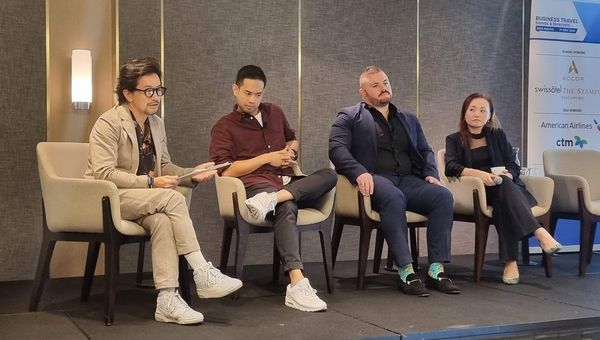In a panel session titled "Overcoming Hurdles to Business Travel Innovation" at the Business Travel Trends and Forecasts series in Singapore on 17 July 2023,
corporate travel managers and procurement professionals gathered to
discuss the importance of innovation in the corporate travel industry.
The panelists shared insights into the current state of travel recovery,
the role of technology in driving innovation, and the challenges faced
by both buyers and startups in the industry.
Travel recovery in the corporate world
Kei Shibata, the moderator of the panel, who is also the co-founder & CEO of Travel.jp,
Trip101 & WiT Japan & North Asia, kicked off the discussion by
addressing the recovery of corporate travel post-pandemic. He
highlighted the differences between the consumer and corporate travel
sectors and expressed curiousity about the state of recovery in the
corporate world.
Sani Gouw, head of product at TruTrip, shared that his startup had
launched during the pandemic, making it challenging to compare recovery
with pre-pandemic levels. However, he noted that they had experienced
significant growth due to the absence of prior data for comparison. Sani
also mentioned that "our customers' conversations have shifted from
pandemic concerns to economical aspects, with a strong emphasis on
sustainability and efficiency in business travel."
Ben Wedlock, senior vice president of global sales, Asia Pacific at
BCD Travel, said that the travel recovery cannot be summed up as a total
as “the return of business travel varies across different regions and
countries in the Asia Pacific marketplace. We estimate a return rate of
75% to 80% compared to pre-pandemic levels at the moment." Wedlock
expressed optimism for the future, projecting a return to near-normal
levels by late 2023 or early 2024.
Brenda Quek, Asia-Pacific travel, meetings and events program and
engagement leader at Ernst & Young, said that while the appetite for
travel remained strong, sustainability was a significant concern for
corporate travel management.
“Achieving a complete return to pre-pandemic levels is challenging
due to the commitment to balance travel with sustainability goals. We
need to constantly innovate and automate processes within the travel
programme, encouraging a shift towards more sustainable practices,” Quek
added.
Exciting innovations in business travel

From left: Kei Shibata, Travel.jp, Trip101 & WiT Japan & North Asia; Sani Gouw, TruTrip; Ben Wedlock, BCD Travel; Brenda Quek, Ernst & Young. Photo Credit: Cheryl Teo
Ben Wedlock highlighted the transformative power of conversational
artificial intelligence (AI): "Imagine having an executive assistant in
every traveller's pocket, leveraging AI to provide a seamless travel
experience from booking to reconciliation. AI is not intended to replace
human interaction but rather to enhance and streamline travel
processes."
Brenda Quek touched on the importance of innovation in everyday
processes: "We need to continuously evaluate our existing practices to
identify areas that can be automated or improved. Innovation encompasses
both big and small changes, including creating new solutions and
automating manual tasks, fostering a culture of continuous improvement."
Quek also mentioned Ernst & Young’s success in using blockchain
technology to increase visibility and promote sustainability in leisure
travel bookings.
Overcoming challenges and embracing collaboration
The panelists addressed the challenges faced by corporate travel
buyers in adopting new technologies and fostering innovation within
their organisations.
Brenda Quek highlighted the need for market readiness and education:
"Given the diverse nature of the Asia-Pacific region, collaboration with
internal stakeholders and business units is essential to align on the
adoption of new solutions. We've leveraged chatbot technology to enhance
communication and provide timely information to travellers, reducing
the burden on travel managers."
Sani Gouw emphasised the role of partnerships between traditional
TMCs and startups in driving innovation: "Collaboration and due
diligence are crucial when evaluating potential partners to ensure that
the solutions align with customers' needs. We must understand the pain
points of corporate travel buyers and address them collectively."
Market consolidation and opportunities
The panelists discussed the evolving landscape of mergers and acquisitions (M&A) in the industry.
Sani Gouw expressed confidence in their startup's growth potential:
"While fundraising is always a challenge, our primary focus is on
investment and collaboration with startups rather than pursuing M&A
opportunities. Partnerships and collaborations are key to fostering
innovation and growth within the industry."
Brenda Quek highlighted market readiness as a significant pain point,
noting the diverse levels of technological maturity across different
markets in the Asia-Pacific region. She emphasised the importance of
education and working collaboratively with internal stakeholders to
ensure successful adoption of innovative solutions.